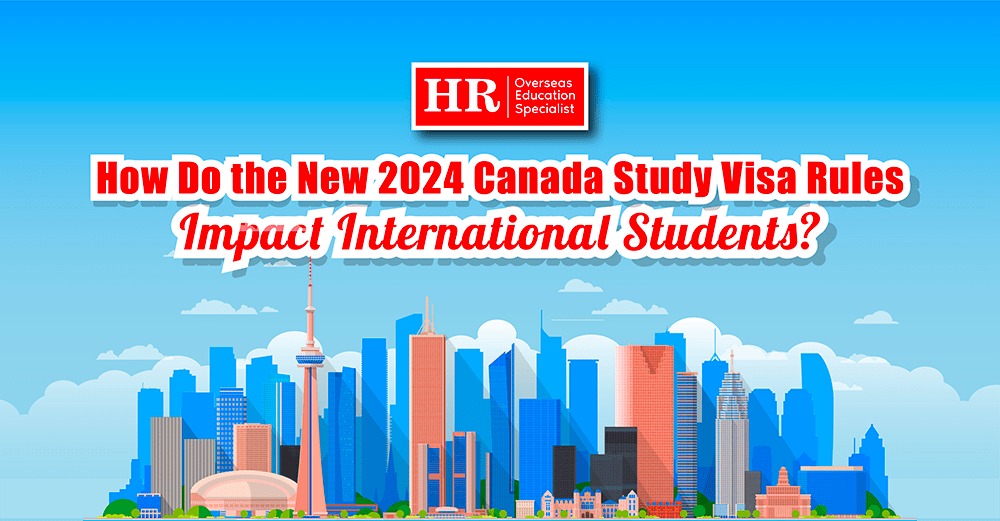
Canada has long been a popular destination for study abroad. The country is known for high-quality education and a welcoming environment. But, recent changes to the study visa regulations are set to influence how international students plan and manage their studies in Canada.
Here’s what you need to know about the new rules for Canadian study visas in 2024.
College and University Transfer Restrictions
International students will no longer be able to change their college or university after arriving in Canada without reapplying for a study permit.
Impact: Students must carefully choose their institution as transferring later will involve a lengthy reapplication process.
Direct Reporting to IRCC
Previously, colleges and universities reported to their respective provincial governments. Under the new regulations, these institutions must now report directly to Immigration, Refugees and Citizenship Canada (IRCC).
Impact: Students will experience more direct and consistent monitoring from federal authorities, ensuring better compliance with visa regulations.
Enrollment and Status Tracking
Educational institutions are now required to report the enrollment status of their students directly to IRCC.
Impact: Increased monitoring of student attendance and progress will lead to quicker action for those not meeting visa conditions.
Temporary Federal Cap on International Student Intake
The number of study permits approved in 2024 is expected to decrease by 35% compared to 2023, with a cap set at 360,000.
Impact: The temporary cap is likely to create a more competitive environment for international students seeking admission to Canadian institutions.
Changes to Post Graduation Work Permit (PGWP) Eligibility
Starting September 1, 2024, international students who start a study program offered by a public-private partnership (PPP) institution as part of a curriculum licensing agreement will not be eligible for PGWPs after graduation.
Impact: Students in private colleges will lose the opportunity for work experience in Canada after graduation.
Another significant change to the PGWP program is that graduates of master’s degree programs will now qualify for a three-year work permit.
Impact: Master’s graduates will have extended opportunities to gain Canadian work experience and qualify for permanent residency.
Changes to Spousal Open Work Permit Eligibility
Only spouses of international students enrolled in masters, doctoral, and professional programs will be eligible for open work permits.
Impact: Limited work opportunities for spouses of students in non-professional programs.
Updated Cost-of-Living Requirements
Effective January 1, 2024, international students must prove they have at least $20,635 to cover their living expenses, doubling the previous requirement of $10,000.
Impact: Higher financial proof requirements may limit access for students from lower-income backgrounds.
Is Your Canadian Study Dream Impossible?
Canada’s student visa rules are complex and often change. This can be confusing for students who want to study abroad. HR Consultants offers expert guidance to navigate these complexities. Our deep knowledge of Canadian immigration and education ensures you find the right path. With our support, you can confidently achieve your Canadian education dream.



